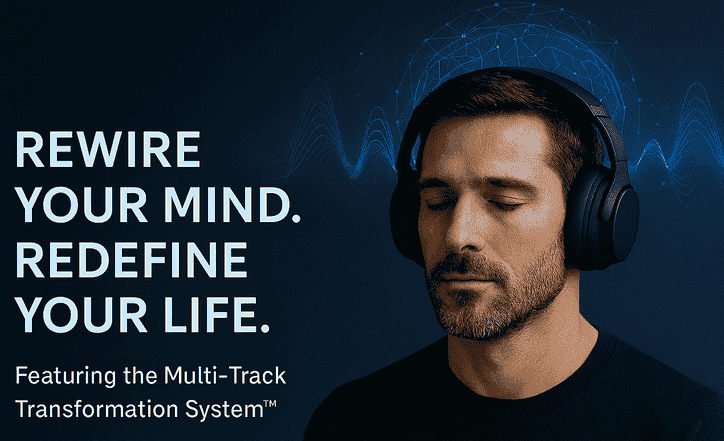Many people around the world experience a variety of fears, which can lead to anxiety, stress, or even panic. (See our full list of phobias further below.)
Fears come in many forms and cover the full spectrum of life.
These include fears rooted in nature (spiders, heights, etc.), man-made technology (flying, elevators), and environmental or social situations (public speaking, intimacy, crowded spaces).
Some fears may have no apparent trigger or reason, such as fear of death.
Such issues can intensify over time and become phobias - unconscious habits we carry throughout our lives, over which we often have no conscious control.
Fears are deeply personal and emotional, affecting health, relationships, careers, and overall quality of life.
Feeling scared is actually a natural self-defense mechanism designed to protect us from perceived danger.
How Fears Can Become Over-Sensitive
When triggered by trauma, this self-defense mechanism can become over-sensitive, causing repeated anxiety symptoms even when no real danger exists. It functions like a mental “program” running on autopilot.
Your mind triggers these symptoms, but physically, the anxiety is real - even if support or understanding isn’t available.
Often, those who don’t experience these fears have little empathy, and their indifference can heighten the sufferer’s anxiety.
Fears and phobias are involuntary. No matter how hard you try consciously, your “default settings” don’t allow you to override them.
The harder we try to control fear, the stronger it can become. It essentially becomes an automatic response, signaling danger whenever we encounter a triggering situation.
Many people suffer physical and mental symptoms such as rapid heartbeat, shaking, dizziness, dry mouth, extreme worry, impaired thinking, and more.
The most effective treatment targets the source: the subconscious mind - the place where fears reside.
Relaxation and hypnosis are effective in reprogramming the mind, reducing both mental and physical symptoms until they significantly diminish or disappear.
Additional helpful strategies include:
Mental Techniques for Fears and Phobias
1. Mantras
Focus away from the fear by repeating a positive phrase or words silently, 100–200 times. Examples: “Calm and relaxed.”2. Relaxation Techniques
Close your eyes, take deep breaths, and either:
a) Visualize a calm place or sanctuary.
b) Create an inner cave with a protective, calming figure.
c) Focus on your breath, counting each outbreath until you feel in control.3. Distractions
Redirect attention to something neutral, such as reading, crosswords, or focusing on a small object.4. Sensory Deprivation
Use eye masks or ear plugs to reduce sensory input in stressful situations.5. Hypnosis
Hypnosis targets the subconscious directly and has excellent results for fears and phobias.
While mantras, relaxation, and distractions can ease symptoms, hypnosis addresses the core subconscious fears, allowing automatic responses to be changed or eliminated.
My personal experience: I struggled with a fear of flying during takeoff and landing. Through hypnotherapy and customized hypnosis recordings, the fear was permanently removed.
While nothing is guaranteed, addressing the issue at its source - the subconscious mind - is the most reliable approach.
Attempting to overcome fears at the conscious level often fails, as the root cause resides in the subconscious.
List of Common Fears and Phobias
(Technical name followed by description)
Acrophobia - heights
Agoraphobia - open or crowded spaces
Arachnophobia - spiders
Aviophobia - flying
Claustrophobia - enclosed spaces
Glossophobia - public speaking
Nyctophobia - darkness
Phobophobia - fear of phobias themselves
Phronemophobia - thinking
Pnigophobia - choking
Podophobia - feet or walking
Porphyrophobia - the color purple
Potamophobia - rivers or running water
Pteromerhanophobia - flying Pyrophobia - fire
Radiophobia - radiation or X-rays
Rhytiphobia - getting wrinkles
Samhainophobia - Halloween
Sanguivoriphobia - vampires
Scolionophobia - school
Sciophobia - shadows
Scopophobia - being looked at or stared at
Selachophobia - sharks
Seplophobia - decaying matter
Siderodromophobia - trains
Sinistrophobia - things on the left side of the body
Sitophobia - food or eating
Social anxiety disorder - social situations and being judged by others
Sociophobia - social situations or people
Somniphobia - sleep
Sophophobia - learning or knowledge
Spectrophobia - ghosts or mirrors
Spheksophobia - wasps
Stasibasiphobia - standing or walking
Stenophobia - narrow spaces
Stereophobia - stereotypes
Stigmatophobia - being criticized
Stygiophobia - hell
Syngenesophobia - relatives
Tachophobia - speed
Taphephobia - being buried alive
Technophobia - technology
Trypanophobia - injections or needles
Telephonophobia - telephones
Teratophobia - deformed people or monsters
Tetraphobia - the number four
Thalassophobia - the ocean or sea
Thanatophobia - death
Theophobia - God or religion
Thermophobia - heat
Tocophobia - pregnancy or childbirth
Tomophobia - surgical operations
Topophobia - certain places or situations
Toxophobia - poison
Traumatophobia - injury or wounds
Triskaidekaphobia - the number 13
Trypanophobia - needles or injections
Tuberculophobia - tuberculosis
Turophobia - cheese
Uranophobia - heaven
Urophobia - Fear
Vaccinophobia - vaccines
Venustraphobia - beautiful women
Verminophobia - vermin, such as rats or cockroaches
Vestiphobia - clothing
Virophobia - viruses
Vitricophobia - stepfathers
Wiccaphobia - witchcraft or witches
Xenoglossophobia - foreign languages
Xenophobia - strangers or foreigners
Xerophobia - dryness
Xylophobia - forests
Zoophobia - animals
Zelophobia - jealousy
Zenophobia - feeling homesick
Zephyrophobia - wind
Zeusophobia - God or gods
Zelotypophobia - jealousy
Zoanthophobia - animals
Zoonophobia - animals
Zoophobia - animals
Zophophobia - animals
Zuclopenthixol - antipsychotic medication
Zymmophobia - fermenting or fermentation
🎯 Need Something More Personalized?
For specific anxiety triggers (public speaking, flying, social situations), a custom recording targeting your exact fear response may provide faster relief. Our custom hypnosis recordings are created just for you, addressing your specific goals and challenges.
Or for a serious dive into deep meditation, check out my Deep Meditation program - using audio technology allowing you to access relaxation levels once accessible only to those who meditated for decades, such as zen monks.







